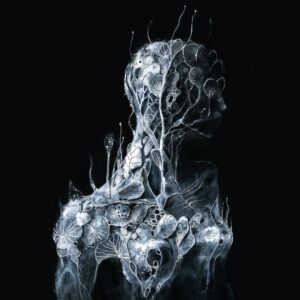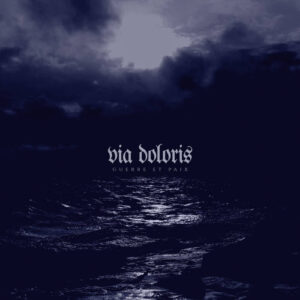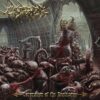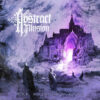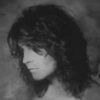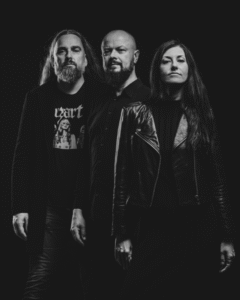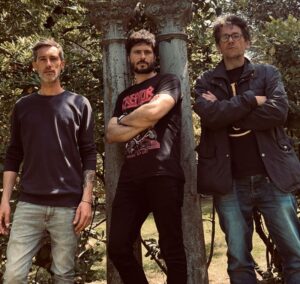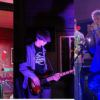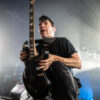Moran Magal: "I want these songs to stick with them...what it holds is not how many key changes or tempos can I write and play unless you are a musician that aims for that. I want to give something to treasure and being not predictable at the same time."
September 29, 2019

From their Facebook Page, MORAN MAGAL is Piano Based Folk Rock with a Gothic Metal edge. Romantic, Dark, Melodic and Powerful. Dark signature voice and passionate piano, Story telling Folk Rock with a Gothic Metal edge. Metal Temple WriterSergio Poncegot a chance to catch up with the vocalist of the same name.
Let's talk about tags, are you ok with your music being tagged as Metal, Folk or Progressive?
MM: I think tags - in a way - are important; my music has Folk and Goth Metal influences, that's how I would describe it. But of course, inside you can find songs that are more in the Symphonic Metal or Singer-Songwriting style. Fortunately, I can play a lot of genres, but it is difficult sometimes because you want to play live in a festival and want to reach an audience and labels can be confusing, and you don't want to confuse people.
Your songs are written in piano-keys, which itself differs from almost every E minor Metal band. What's your take on that, being yourself also a singer who needs to locate in specific keys?
MM: When I wrote a song, never think in the key. What I do is think in certain feelings; for example, when I compose in C minor, it is a very dramatic key, that can be found in Beethoven Sonatas, or D minor which is more of a melancholic piece, E minor can also be melancholic. Each key has a particular element. When I write in piano, there is a certain "feeling" that motivates the song; after that, I check if the feeling is adequately translated to the key, and finally, I check if it is meant for my voice. When I composed "Tododo", the original key was F minor (a half step higher than the current version) and the modulation was going to F sharp minor, but then I started to feel that It was too high for my voice. So I lowered it to fit my natural voice color, becoming an E minor song. I focus on finding a motif that's interesting in the piano, which speaks to me through the instrument, to give some color, like a painter. The piano can provide themes that are impossible to achieve in another instrument, especially the low octaves, which can enhance drama and speed in some parts, like in the song "Under Your Bed."
There is one song, "Reality TV" that has some dry humor in the lyrics, which warms up the vibe of the song, especially in this genre that some people take themselves too seriously. What's your take on that?
MM: That's right; I have a sense of humor, even in angrier situations. That track is indeed a protest song, and I wrote it before I was offered to participate in the "Reality TV" show, as a matter of fact, it was written against it. So, I said to myself; "I'm gonna write this song, treating myself with humor, being exactly who I am, doing exactly what I do." And finally, I ended up writing from my own experience from being part of a Reality TV. One thing is to participate there and show your talent, but another is to get famous for nothing, and being an empty vessel, that's not ok, and that's what this song is about, about people being empty shells and becoming culture heroes. There are two characters on this song, one that is authentic and another that's more playful.
Just read that you are residing in Berlin, that gives me back memories of some famous rock people who lived very intense and creative Berlin-Esque periods, like David Bowie, with the Berlin album trilogy ("Low", "Lodger", and "Heroes") Do you think you are living that Berlin period? Your creative peak?
MM: That's an interesting question. I would say that Berlin allowed me to be a full time artist, to establish my whole band. I can afford a rehearsal room, to work with brilliant photographers and video makers, work in studios, afford to find an apartment, and to live from music. Berlin allows me to be a full-time artist and to collaborate with other people, for example with Leah Striker, a video filmmaker, whom I knew accidentally giving piano lessons. Now, regarding songs that were influenced by living in Berlin? Soon they are coming because the songs of the "Under Your Bed" album were written before moving here.
Mideastern people as yourself are under the influence of tons of cultures and their background hail from diverse musical traditions, so with that into account, was the song "Over My Shoulder" written with some "Andalusian" flavor in mind?
MM: I love to incorporate oriental influence on my music. I worked previously with ORPHANED LAND ("Left Behind" song from their last record) and Yossi Sassi, both from Israel. Also if you check the song "Feel Again" (from her previous album "Piece of Advice") has that oriental flavor too. There was a time I was really in love with those kinds of influences. My maternal grandparents came from Iraq, and my father came from Hungary, so I guess I have been like a sponge with all these sounds throughout my life. I think all of these factors apply for the Andalusian key that you mentioned, as I used the phyrgian mode with a diminished minor in the second degree. But again, that came naturally, it wasn't a preconceived thing.
You have chops to play off for hours, but you choose to stay away from that and take (as I call it) the QUEEN (band) approach, which is to write complicated stuff but in a song-oriented format, and not as an instrumental indulgence.
MM: Thank you, this happens because I'm worried for the people that listen to my songs, I want that these pieces stick with them, and what it holds is not how many key changes or tempos can I write and play unless you are a musician that aims for that. I want to give something to treasure and being not predictable at the same time. As an artist, you have to find those places where you can do something a little bit more interesting. I know some people complaining that I should have show off a little bit more, with more solos and stuff, but no, if the music it means to be virtuous at some moments, ok, go ahead, art must be a combination of something challenging and treasurable for all people at the same time.
In the same spirit of the last question, your song "Under Your Bed" at the 28-second mark has a modulation, tempo, and time signature change, all at the same time, but it doesn't sound forced, it flows naturally. How did you achieve that music-wise?
MM: Because I never thought; "now I'm gonna change the tempo, the key "I never think about it. And by the way, that choir part was not included initially; there was a violin solo instead. I listened, and I guess: "No the violin solo its wrong; I want to do something that emphasizes the horror element of the song" so that's why I wrote that children choir for the ending. Sometimes you start with something and end in a different note. On the other hand, there are songs like "Tododo" that are very simple and kept it that way, as a children's song.
Also, you did a cover of Alice Cooper's "Poison," can you elaborate more on your approach to it?
MM: Regardless of the amount of intimidation that Metal can cause to certain people because of its imagery, which is very unfair given the beauty and quality of this genre, I listen to a lot of it. So, "Poison" is a beautiful song; if you put out the drumming, the distortion and strip it down on piano turns out is a sad/ tragic song. I slowed the tempo down, kept it low, enhancing the feminine side of it, I left off some of the modulations because it wasn't necessary when you are playing in it on piano. I did it full of emotion, in order to make the audience feel it, and by the way, more than once, I had guys telling him they cried with this interpretation. Once you stripped down a song, you realize the emotion the song conveys. I was afraid at the beginning with metalheads hating it, but it turns well and opened lots of doors for me.
One interesting point is your music relation with the bass guitar. In the past, the bass always gets in the way of the lower registers of the piano. How you combine (from a compositional point of view) what you do with your left hand and the bassist's groove?
MM: In Metal or Rock, I try to stay out of the lower octaves and keep it on the mid registers, and use those keys for emphasizing something, to make it bigger. But in jazz, for example, I can do the opposite because actually, I can hear everything, whereas in Rock music, with all the drumming, the crowd, the distortion I'm less exposed, so the range changes depending on the music style. But you know, when I recorded the piano parts on the "All is One" record of ORPHANED LAND, Kobi Farhi told me: "More low chords please!!" so I guess in Metal music this kind of big low chords works.
You had the opportunity of collaborating with the late Warrel Dane, former singer of NEVERMORE; both you and he have and had a low vocal register, did you have any music empathy with him because of that?
MM: The most I remember is the feeling of being blown away when he sang the first line. The emotion he conveyed was terrific, more than anything, and the power and control he had with his voice. There is nothing more impressive for me than when a singer does it from his heart, surpassing the fact of singing the highest note, that's not what music is it about (how high or how low you sing.) It was a great decision to give him that depth in that song.
You have some influence of American pianist Tori Amos, can you tell us how much she impacted on your musical growth?
MM: She is a goddess; I love her so much; for me, she is beyond the music. Remember when I was fifteen, and I listened to one of her CDs, and I asked who her pianist is? Then somebody told me she was. I looked at the artwork, realizing that the music was beautiful, the piano parts were complex but in service of the song. I started to play the piano because of that. I bought her CDs, her books and took very seriously the fact of playing Classical and writing songs. She changed everything about music for me; she was a composer, a singer, with beautiful lyrics and messages. She is incredible, one of a kind and the mother of this genre, the piano songwriting music.
Ok, Moran, time to wrap this interview, thanks for your time, and keep composing great music.
MM: Thanks for the kind review, this album means everything for me and the band, and it is our first attempt on going big, so, thanks again.
Source:
More results...
